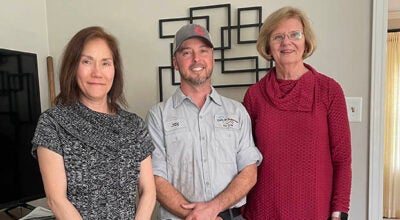‘Could’ve, would’ve, should’ve’
Published 6:00 am Friday, September 24, 2021
|
Getting your Trinity Audio player ready...
|
I have often heard the phrase (or some variation of the phrase), “If ifs and buts were candy and nuts, we’d all have a merry Christmas.” Ifs, buts, could’ve, should’ve, would’ve, they all seem to go hand in hand. What draws me to this topic is the sad truth that I find it so easy for so many people, including myself at times, to look at another person (usually behind their back), and start listing what the other person should have done, what the other could have done, or even better, “what I would have done in their situation.” I think sometimes it’s too easy to do. After all, we all know-how we would have handled something is much better than how the other person handled it (slight sarcasm intended).
We often look at things from our own perspective, from our own experience, from our own values, and based on those things alone, we pass judgement on what another person is doing, or how they are doing, or what they have done. It’s easy when we don’t know the other side of the story.
“They could have done this;” (our opinion) “they should have done this;” (our judgement) “I would have done this.” (our superiority) Usually, the last thing a person needs to hear are those words or even worse.
Maybe a different way of viewing things would require us to do the following: First, ask ourselves, “Does it concern me? Is it affecting me? Is it hurting the church or another Christian?” If none of the answers are “yes,” then it really doesn’t matter what you think. You’re obviously not sharing it with the person, which leads me to the second thing we should probably do: If the answer is “yes” to any of the above, then the person to share our advice with or opinion or concern with is with the individual(s), not the back row of the church congregation or the talk-time at the lunch table after church.
And this takes me to the third thing that maybe we should do: Before we open our mouths with how we would do it differently, how they could have done it better, how they should have done it differently, we open up our ears and listen to what they were thinking. Listen to their circumstances. Listen to their reasoning. That third thing is understanding the person and trying to see it from their perceptive. Putting yourself in their shoes. In doing so, maybe you will find it easier to do the fourth thing that we should maybe do: offer words of understanding, not judgement, offer words of support, not necessarily correction and offer words of encouragement, not discouragement.
“Do not let any unwholesome talk come out of your mouths, but only what is helpful for building others up according to their needs, that it may benefit those who listen.”— Ephesians 4:29
REV. BARRY VASSAR is pastor at Fitzgerald Memorial Baptist. He can be reached at fitzgeraldmemorial@gmail.com.




